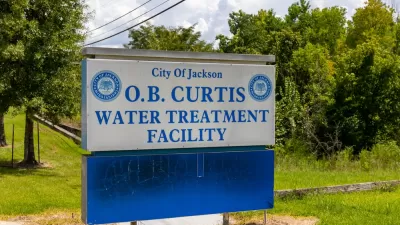Chicago has set lofty goals to become a leader in the next-generation technology and infrastructure of the global future.
"Mayor Rahm Emanuel today announced the launch of Current, a joint effort that brings together public and private partners from across the Chicago area, to solve the toughest water challenges facing the nation and the globe," according to a press release posted on the World Business Chicago Website.
" The effort will be led by an unprecedented partnership between the City of Chicago, the Metropolitan Water Reclamation District of Greater Chicago (MWRD) and World Business Chicago (WBC) and is designed to leverage the strength of the Chicago region’s water industry to drive critical research forward and generate greater economic impact."
Jen Kinney picked up the news for Next City, noting that Chicago's water economy is the forth largest in the United States, "with water infrastructure and technology accounting for $14 billion of the gross regional product."
An official website also has more information about the Current initiative.
FULL STORY: Mayor Emanuel and Regional Partners Launch Joint Effort to Address International Water Challenges

Planetizen Federal Action Tracker
A weekly monitor of how Trump’s orders and actions are impacting planners and planning in America.

Chicago’s Ghost Rails
Just beneath the surface of the modern city lie the remnants of its expansive early 20th-century streetcar system.

San Antonio and Austin are Fusing Into one Massive Megaregion
The region spanning the two central Texas cities is growing fast, posing challenges for local infrastructure and water supplies.

Since Zion's Shuttles Went Electric “The Smog is Gone”
Visitors to Zion National Park can enjoy the canyon via the nation’s first fully electric park shuttle system.

Trump Distributing DOT Safety Funds at 1/10 Rate of Biden
Funds for Safe Streets and other transportation safety and equity programs are being held up by administrative reviews and conflicts with the Trump administration’s priorities.

German Cities Subsidize Taxis for Women Amid Wave of Violence
Free or low-cost taxi rides can help women navigate cities more safely, but critics say the programs don't address the root causes of violence against women.
Urban Design for Planners 1: Software Tools
This six-course series explores essential urban design concepts using open source software and equips planners with the tools they need to participate fully in the urban design process.
Planning for Universal Design
Learn the tools for implementing Universal Design in planning regulations.
planning NEXT
Appalachian Highlands Housing Partners
Mpact (founded as Rail~Volution)
City of Camden Redevelopment Agency
City of Astoria
City of Portland
City of Laramie





























